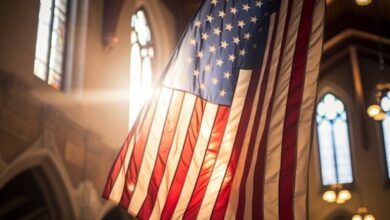Missouri legislation would ban Big Tech from censoring users
Missouri lawmakers are considering a bill that would prevent social media and other Big Tech companies from censoring users.
The “Stop Social Media Censorship Act” from Rep. Jeff Coleman would prohibit social media platforms with at least 75 million users from censoring political or religious content and allow injured parties to seek up to $75,000 in statutory damages unless the speech is found to be obscene, from a false impersonation or enticing violence.
Under the bill, “Hate speech will not be a justifiable basis for a social media website to censor users” and stipulates circumstances in which a social media website will be immune from liability for censoring certain users or speech.
Coleman presented his bill before the House General Laws Committee during a marathon hearing this week. He said his bill would allow Missourians to contest what he considered to be a breach of contract from juggernauts such as Facebook and Twitter.
READ: Poland moves to protect social media speech
“This bill basically gives the residents of Missouri a voice,” Coleman said. “It creates a private right of action and allows them to take these social media companies to court and to sue when that company censors them.”
Coleman and attorney Christopher Sevier fielded questions from the committee on social media terms of service, the designation of obscenity and hate speech, and the subjectivity of content for more than an hour. Sevier said similar bills are moving through 29 states, including South Carolina and North Dakota, with many handled by Democrats. Three other witnesses spoke in support of the bill.
Social media companies, particularly after the insurrection at the U.S. Capitol earlier this year, began to crack down on users. Former President Donald Trump was banned from Facebook and Twitter in the wake of the riots.
HB 482, one of three similar 2021 measures filed by Missouri Republicans, would prohibit social media platforms with at least 75 million users from censoring “political or religious content” and allow victims of censorship to seek up to $75,000 in statutory damages unless the offending speech is found to be obscene, from a false impersonation, or enticing violence.
GIVE US A HAND: Donate $1 as we fight Big Tech
Richard Brownlee testified in opposition to the anti-censoring bill on behalf of Google, noting the complexity of the topic.
“This is the Internet; it goes everywhere in the world, and for us to have to deal with this on a state-by-state basis, it literally borders on the impossible,” he said. “This is a very complicated issue with a lot of far-reaching implications. I’m always reluctant to say this is something that really deserves study and debate and careful thought, and this does.”
The other Missouri bills dealing with Big Tech censoring users are:
HB 932, filed by Rep. Hardy Billington, R-Grain Valley, is the same as HB 482 except it includes a provision that would shield social media sites from liability by stating its status as a publisher in its terms of service agreement.
HB 783, filed by Rep. Curtis Trent, R-Springfield, would require social media platforms clearly define prohibited content in a separate agreement from their terms of service and notify users when updating their standards.
Under HB 783, social media platforms would be prohibited from removing old content based on new terms and companies that do not adhere to the new requirements would face a $100 fine from the state’s Attorney General for a first violation, $200 for a second, and $1,500 for the third.
Committee members and witnesses noted that social media was a complicated issue and said discussion over this bill would continue through later hearings.
–Dwight Widaman | Metro Voice






